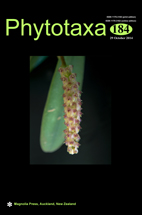Abstract
Species of Pseudocercospora have gained much attention in recent years owing to their phytopathogenic relevance, and worldwide occurrence on a wide range of economically important hosts. Although these fungi are common in Iran, they have generally been poorly studied and no cultures have been preserved for molecular analyses. The present paper represents the first study of Pseudocercospora species from Iran evaluated by employing the Consolidated Species Concept. Nineteen isolates were obtained from seven host plant families in the northern zone of Iran. A phylogenetic analysis based on a combination of LSU, ITS, TEF1-α and ACT loci clustered these isolates into eight clades, of which five are phylogenetically new, delineating two novel species, viz. P. mazandaranensis on Nerium oleander and P. sophoricola on Sophora alopecuroides. Furthermore, P. punicae is recorded on a wild-grown cultivar of Punica granatum, and two additional species reported, namely Pseudocercospora sp. A on Phaseolus vulgaris and Pseudocercospora sp. B on Diospyros lotus. Pseudocercospora norchiensis is recorded for the first time in Asia, where it occurs on a wide host range, contrary to most other species of Pseudocercospora, which appear to be highly host specific.

